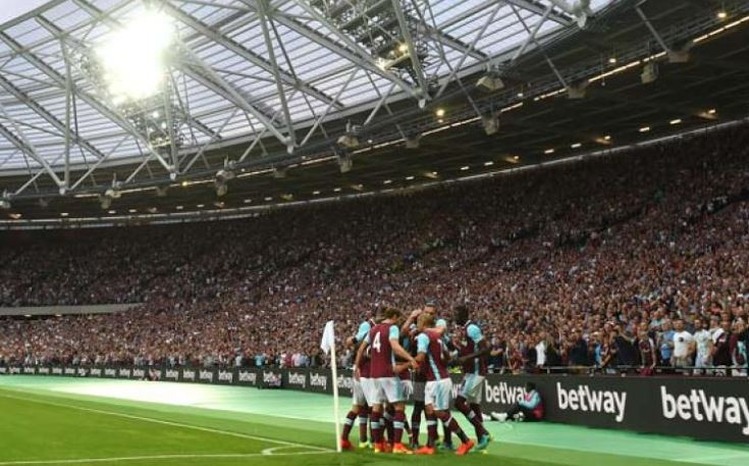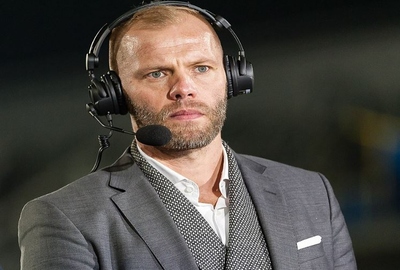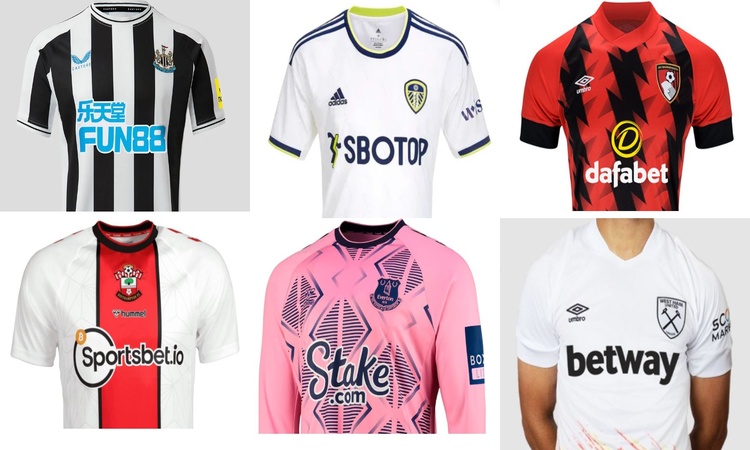New football shirt sponsorship deals are announced before every new season, with some clubs having long standing partnerships with big brands and others changing sponsors every few years – one thing that never changes though, is the dominance of gambling brands.
Over the last decade or so, there has been a consistent 40%-50% of clubs sporting gambling brands on their chests (that’s between 8 and 10 clubs each season).
In the 2022/23 campaign there are 8 clubs:
- Bournemouth – Dafabet
- Brentford – Hollywoodbets
- Everton – stake.com
- Fulham – W88
- Leeds – SBOTOP
- Newcastle – Fun88
- Southampton – sportsbet.io
- West Ham – Betway
These deals are worth a total of around £60 million per year for the clubs involved.
Plus, Leicester are sponsored by FBS, which is technically a financial services company but offers some very high risk products like trading options, which are arguably more dangerous than gambling.
All this is about to change though, because last week, Premier League clubs collectively agreed to withdraw all front of shirt gambling sponsorship.
Pay attention to the wording there, because it isn’t quite what it seems…
Gambling Advertising Still Allowed

Many have welcomed this news as gambling and football has long been a hot topic among the industry, politicians, and anti-gambling campaigners.
The Premier League will be the first sports league in the country to take an action of this kind too.
However, it is not exactly the result campaigners were hoping for, because although front of shirt sponsorship will end, sleeve sponsorship and advertising around the ground, including pitch side hoardings, will be allowed to continue.
So the gambling brands will still be seen by those in the ground and those watching on TV, but they won’t be quite so prominent.
James Grimes of The Big Step, and organisation that wants to get all gambling sponsorship out of football said:
“Although this outcome isn’t perfect, it’s a huge step”
“It’s a significant acceptance of the harm caused by gambling sponsorship. No gambling ads are seen more than those on Premier League shirts, worn by billions around the world. “
The move was also welcomed by Culture, Media and Sport Secretary, Lucy Frazer, who acknowledged that:
“The vast majority of adults gamble safely but we have to recognise that footballers are role models who have enormous influence on young people”
No doubt she was also pleased because this is a self regulatory move, not something that has needed to be enforced by government.
When it comes to sleeve sponsorship, only 2 clubs currently have gambling sponsors, but many others have ‘financial services’ companies. It’s probable then that gambling brands will become more dominant in this area in the coming years.
As for the advertising hoardings; with many of these becoming digitised now – and even being able to show different adverts in different countries – there is more flexibility. They can show many different brands during a game which means each brand’s exposure time is shorter, but don’t expect gambling companies to back off unless they are forced to.
Will it be Effective?
 We won’t be able to answer that with any certainty until long after the fact, but we will also need to agree on what the ban is aiming to achieve in the first place.
We won’t be able to answer that with any certainty until long after the fact, but we will also need to agree on what the ban is aiming to achieve in the first place.
If it is to further reduce gambling addiction in adults, then I would say it probably won’t have a significant impact, because the rate of problem gambling in adults has been falling in recent years anyway and is already at just 0.3% of the population – which is low by international standards.
As a comparison, countries in Western Europe vary between 0.5% and 2%, in America it is about 1% of the population, and in Canada it is about 0.6% – and the UK has some of the loosest gambling legislations in the world.
This doesn’t mean that 0.3% of the UK are betting themselves into bankruptcy either, it just means that 0.3% of the population have had some sort of struggle with compulsive betting at some point; for instance perhaps making a few more bets than they should have done.
Importantly though, the age group most dominant within that 0.3% is 16-24 year olds.
With this in mind then, if the aim of the ban is to reduce gambling exposure to minors, then I think getting rid of gambling sponsorship could be very successful.
Kids don’t just see these brands, they wear them on replica kits too, introducing them to gambling companies from a very early age and normalising it to a point. Not to mention associating the brand with their heroes – the players.
Remove that brand from the most obvious place on the shirt, and it won’t get the same sort of attention.
Of course, for most people, the ages of 16-24 are when we experiment and make most of our mistakes, it’s when we tend to be most reckless. So this likely has some impact on the stats too, but nevertheless, reducing exposure will help.
Perhaps the change should be seen more as a single ingredient of a countrywide push to reduce gambling harm, rather than something that is going to solve the problem all together.
Players Suffer with Addiction Too

Finally, it’s not just the fans that have the potential to fall foul of gambling addiction.
There have been many well documented cases of famous players struggling with compulsive gambling, Paul Merson being the one that most quickly comes to mind, but another has spoken out in response to this latest development.
Former Chelsea star, Eidur Gudjohnsen, who spent 6 seasons at Stamford Bridge winning 2 league titles along the way before moving on to Barcelona, estimates he lost around £6 million to gambling addiction during his playing career.
For him, it began when he was injured, and life on the side-lines left him without the buzz he got from playing football.
He replaced it with gambling, sometimes betting up to £2,000 on a single spin of roulette, and this spiralled into addiction.
He welcomes the ban but says it should have come sooner, and has further thoughts on shirt sponsorship in general:
“You have every football fan, every kid in the world, with their eyes on the shirts of our biggest clubs every single day. A shirt sponsor is a strong message. Advertising is so influential.”
“I remember when I played for Barcelona. They had never had a shirt sponsor in their entire history. Barca’s first sponsor was UNICEF – and that link-up generated huge awareness for a worthy cause.
“When a club that is so dominant in the game, like Barcelona, does something like that it can have a huge impact on the world that goes beyond football.”
What a wonderful idea that would be.
For many clubs though, these sponsorship deals are a huge source of income, and despite what people think, a lot of football clubs are not raking it in.
They have massive outgoings and in the case of teams outside the big 6 and in the leagues below, they don’t have the earning potential to turn down sponsorship deals.
So we might not see all Premier League clubs donning charities on the front of their shirts, from from 2026 onwards, there won’t be any gambling companies there either.

